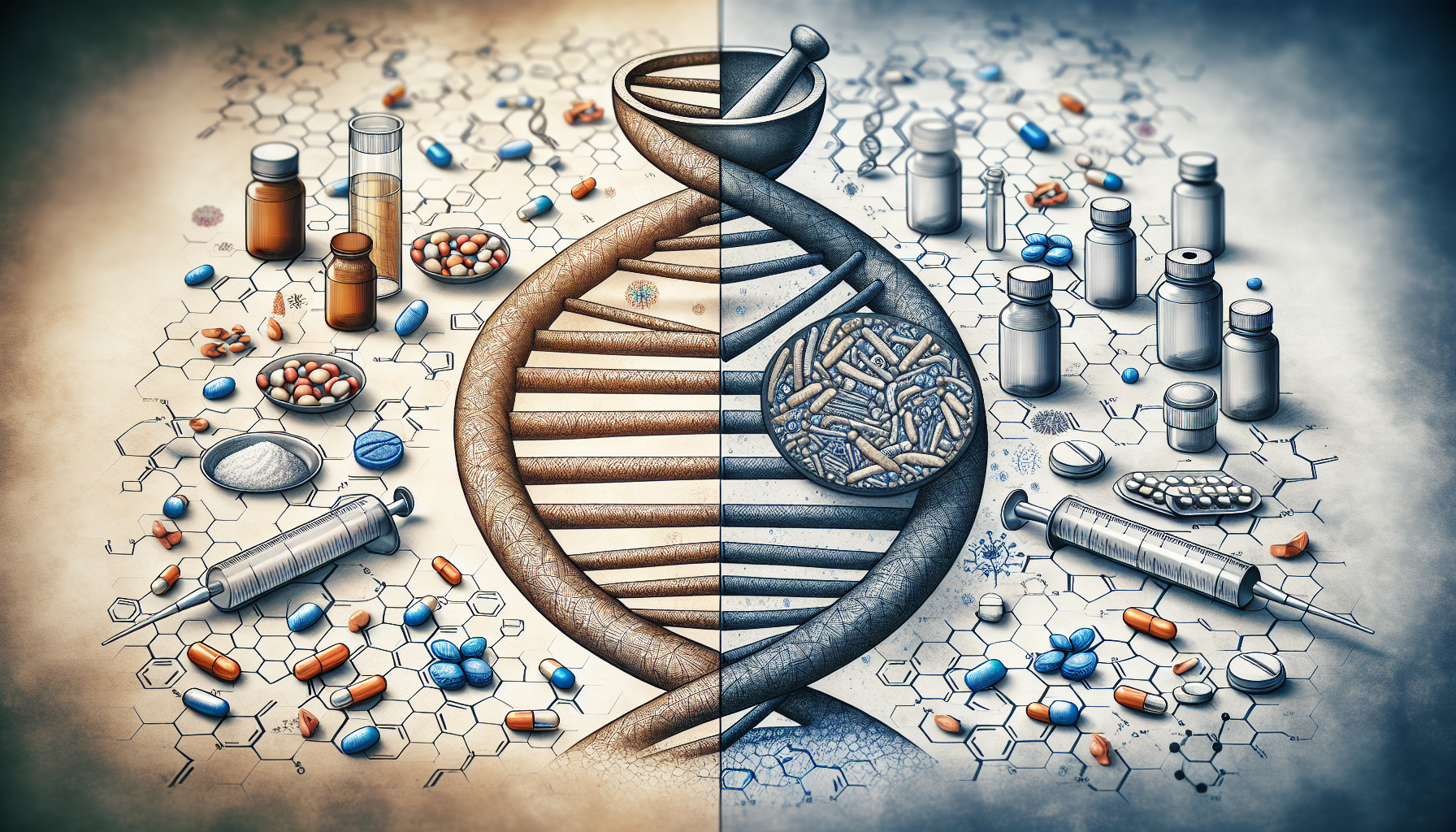In the realm of personalized medicine, pharmacogenomics is rapidly becoming a cornerstone for prescribing medications more safely and effectively. This burgeoning science explores how an individual’s genetic makeup influences their response to drugs. This article delves into the impact of pharmacogenomics on prescribing practices and how it can lead to more precise and personalized healthcare.
The Genesis of Pharmacogenomics
Pharmacogenomics merges the fields of pharmacology and genomics, focusing on the genetic variables that affect an individual’s drug response. Variations in genes responsible for drug metabolism, transport, and receptor sensitivity can alter the efficacy and safety of medications. This variation explains why a medication might be beneficial for one patient but cause adverse effects or be less effective for another.
Relevance to Medication and Supplement Use
The implications of pharmacogenomics extend beyond prescription drugs to encompass over-the-counter medications and dietary supplements. For a comprehensive understanding of how supplements and medications can complement each other, consider exploring the Medication & Supplements section on Avix Health.
Pharmacogenomics in Prescription Practices
Incorporating pharmacogenomic data into prescription practices allows healthcare providers to tailor treatments. Instead of a one-size-fits-all approach, doctors can use a patient’s genetic profile to predict the best possible treatment options, dosages, and medication combinations.
The Role of Genetic Testing
Pharmacogenomic testing identifies genetic variants that influence drug responses. These tests can be performed before starting a new medication to guide dosage and selection. For instance, patients with variations in the CYP2C19 gene may require different dosages of clopidogrel, a medication used to prevent blood clots, to avoid adverse reactions or ineffectiveness.
Impact on Drug Efficacy and Safety
By understanding genetic factors, clinicians can reduce the risk of adverse drug reactions, which are a significant cause of hospitalizations and deaths. Moreover, pharmacogenomics can increase drug efficacy by ensuring medications are prescribed that align with the patient’s genetic profile, thereby increasing the likelihood of a positive therapeutic outcome.
Cost-Effectiveness of Pharmacogenomic Prescriptions
While genetic testing and personalized medicine might seem costly upfront, they can be economically beneficial in the long run. By reducing trial-and-error prescribing, adverse drug reactions, and ineffective treatments, pharmacogenomics can potentially lower overall healthcare costs.
Clinical Applications and Challenges
Pharmacogenomics is already influencing treatments for a multitude of conditions, including cardiovascular diseases, psychiatric disorders, and cancers. For example, oncology has embraced pharmacogenomics to tailor chemotherapy regimens based on tumor genetics.
However, integrating pharmacogenomics into everyday clinical practice faces several hurdles, such as the need for more extensive genetic databases, clinician education, and considerations regarding insurance coverage for genetic testing.
Pharmacogenomics and Patient Education
For pharmacogenomics to be effectively integrated into healthcare, patient education is paramount. Patients should understand the benefits and limitations of pharmacogenomics to make informed decisions about their treatments. The importance of such education is underscored in the article The Importance of Patient Education in Medication Management.
External Resources Supporting Pharmacogenomics
- Clinical Pharmacogenetics Implementation Consortium (CPIC): Provides guidelines on genetic testing and corresponding medication management.
- PharmGKB: A comprehensive resource that curates knowledge about the impact of genetic variation on drug responses.
- Genetic Testing Registry (GTR): Offers a centralized location for voluntary submission of genetic test information by providers.
- International Society of Pharmacogenomics: Promotes education and research in pharmacogenomics worldwide.
Future Directions
The future of pharmacogenomics is bright, with ongoing research and development. As genetic testing becomes more accessible and databases expand, personalized medication prescriptions will likely become the norm, leading to a new era of precision medicine.
For further reading on related topics, consider exploring the following resources on Avix Health:
- Understanding the Role of Bioavailability in Supplement Effectiveness
- Identifying and Managing Supplement-Drug Interactions
- The Importance of Quality Control in Supplement Manufacturing
Pharmacogenomics is more than just a scientific advancement; it is a paradigm shift towards a more individualized, efficient, and safer approach to medication prescriptions. As we continue to unravel the intricate connections between our genetics and our responses to medications, the promise of truly personalized medicine comes closer to reality.



